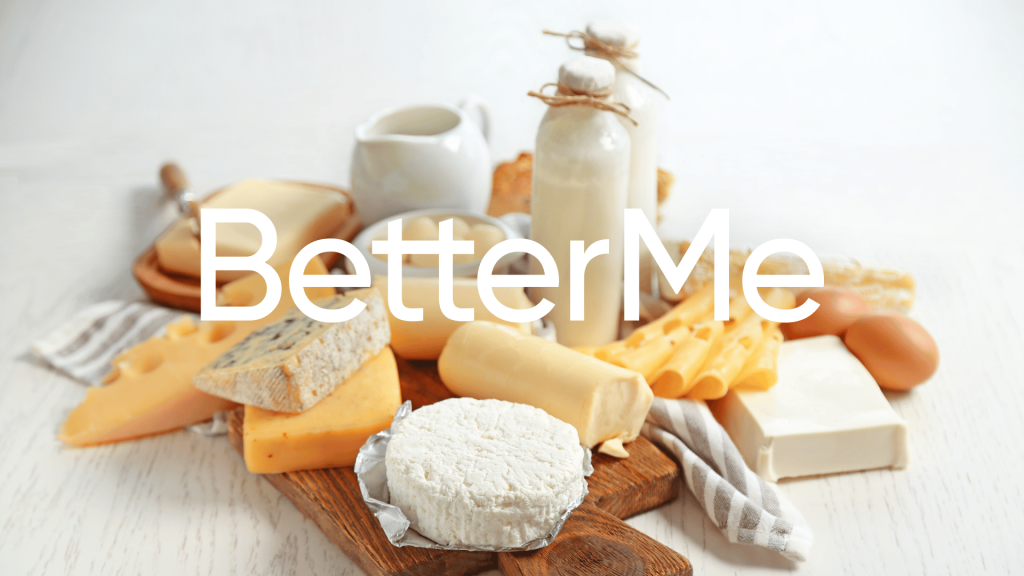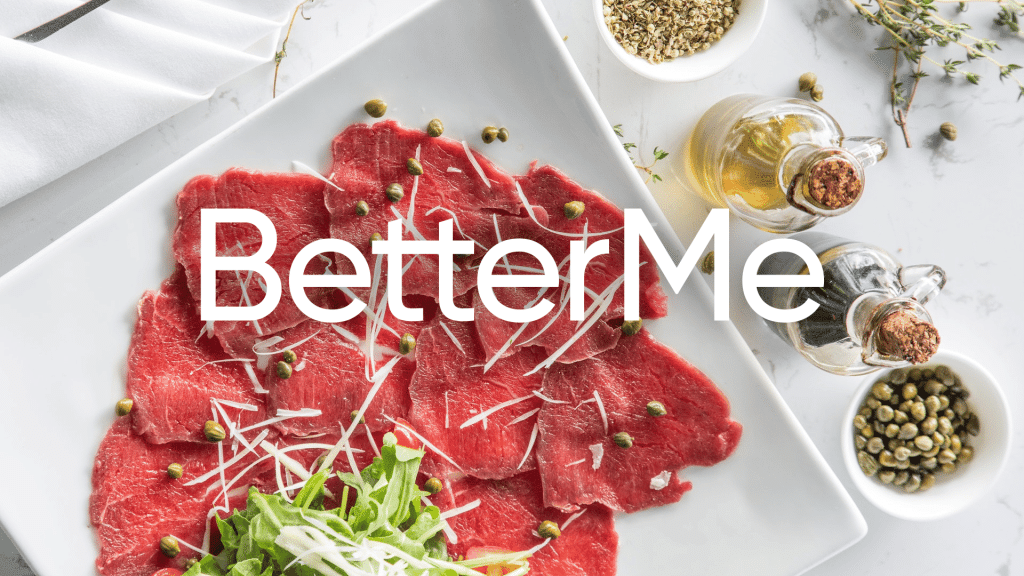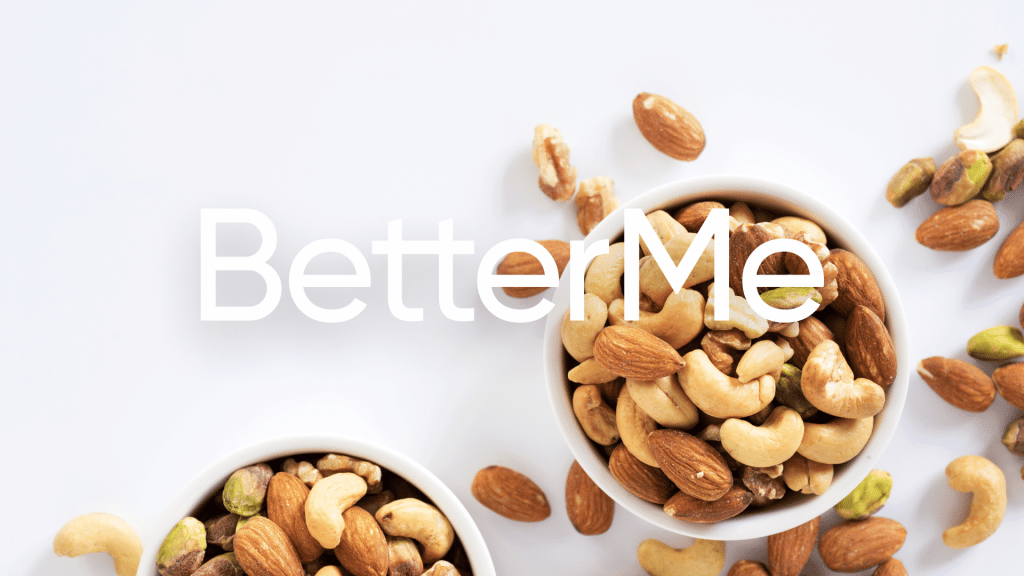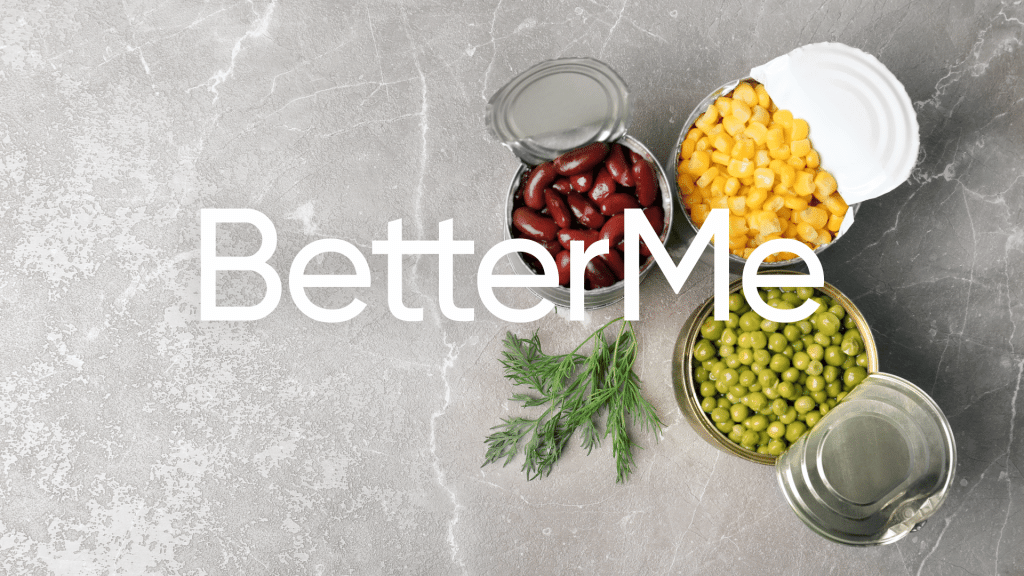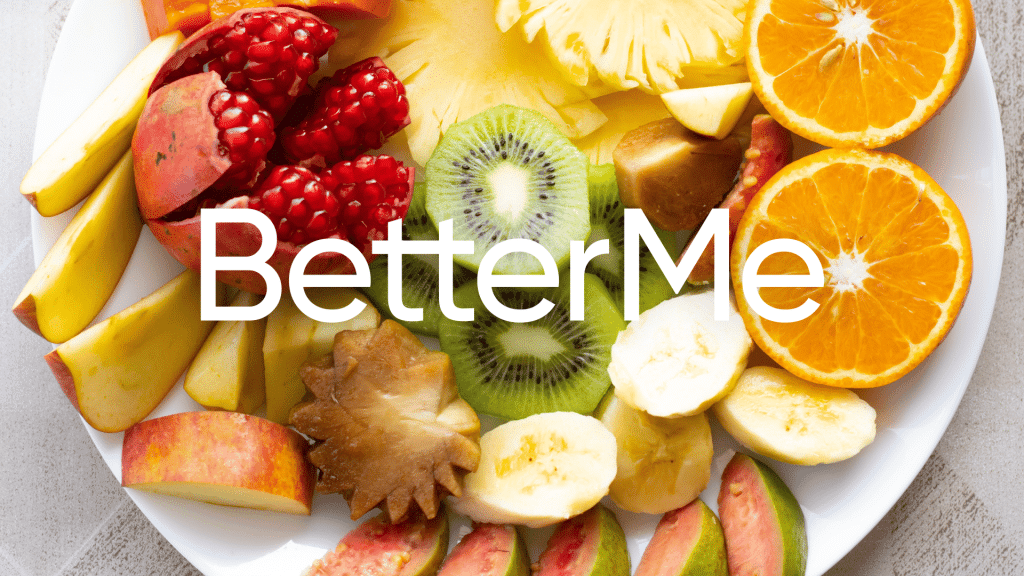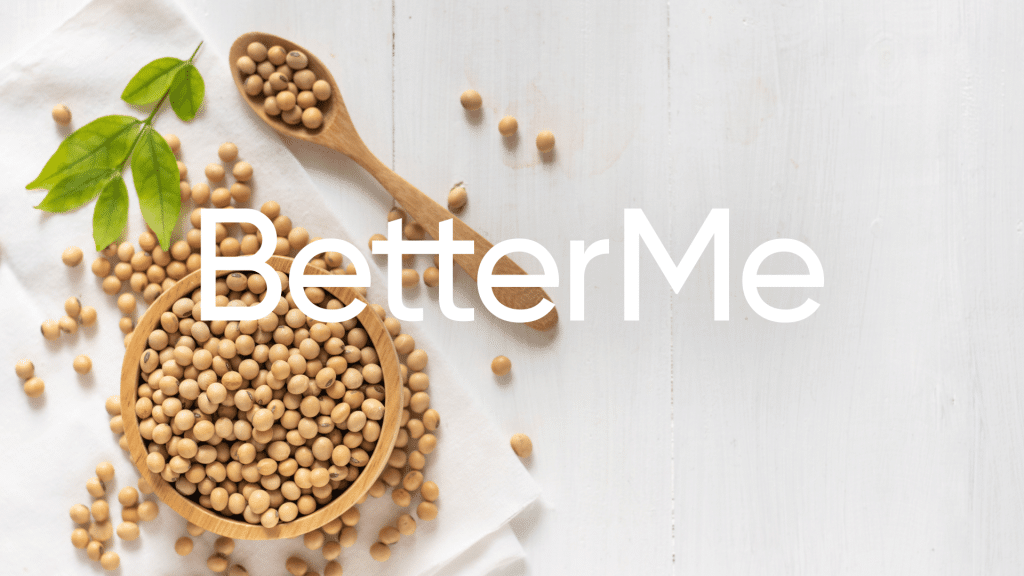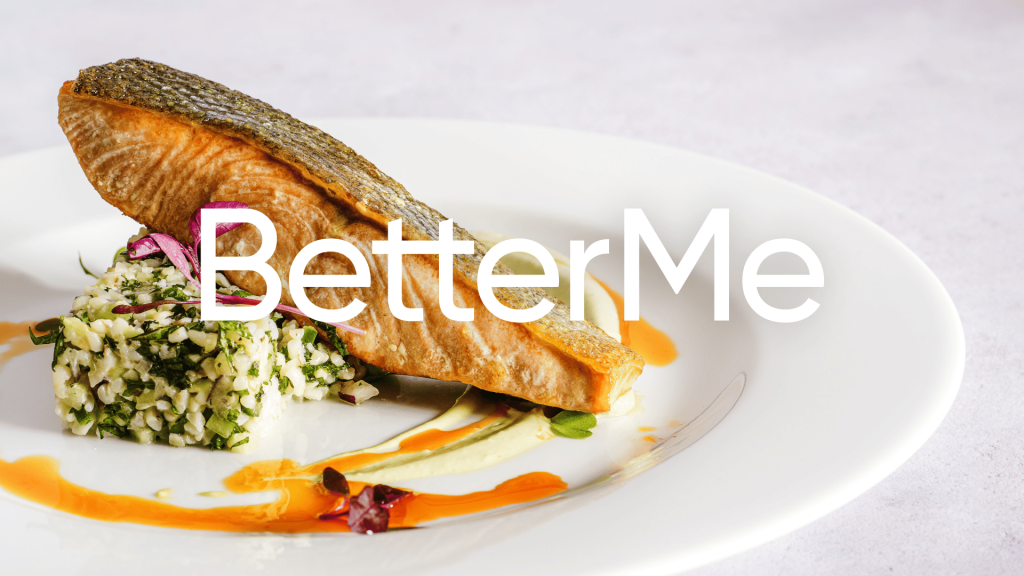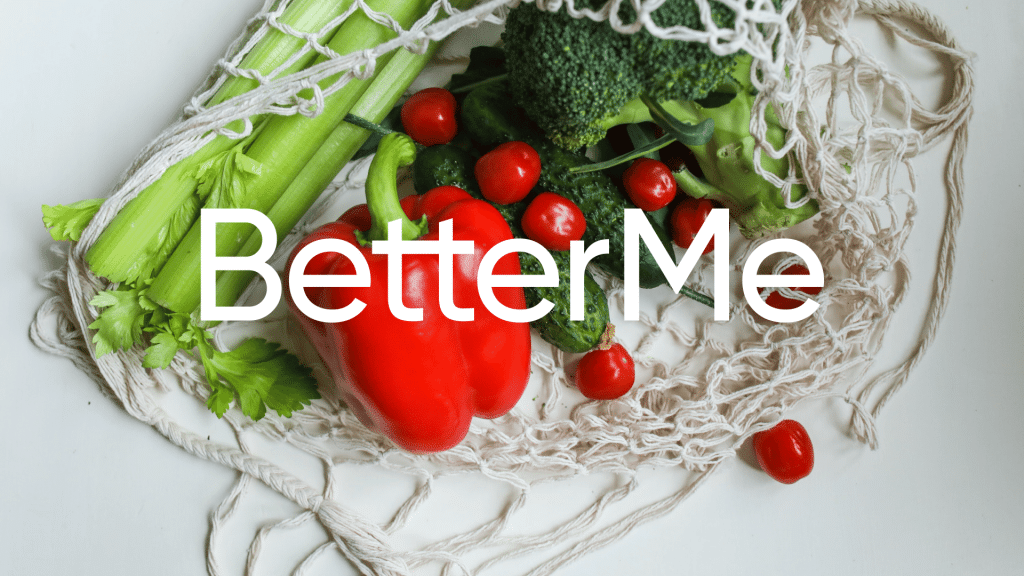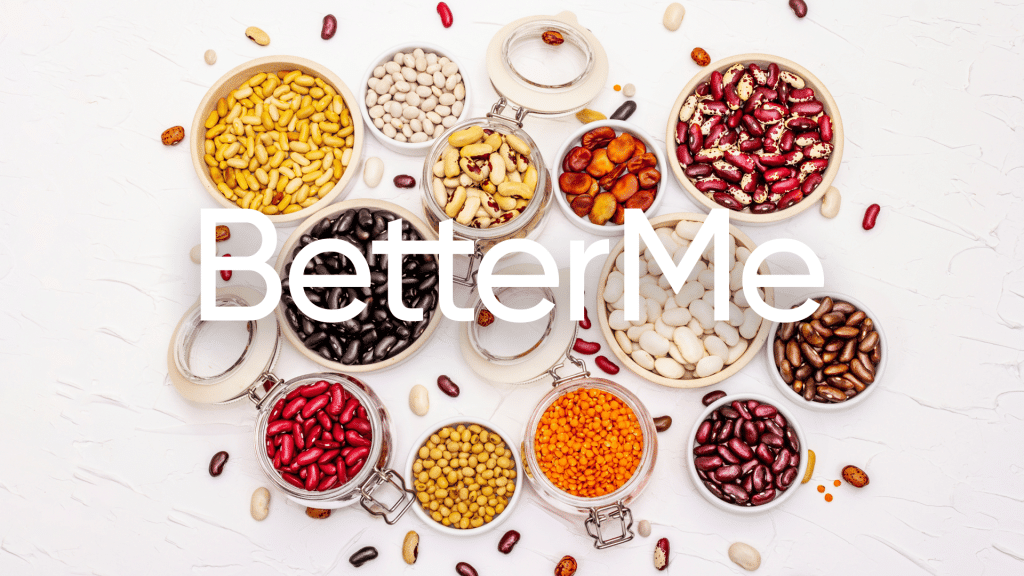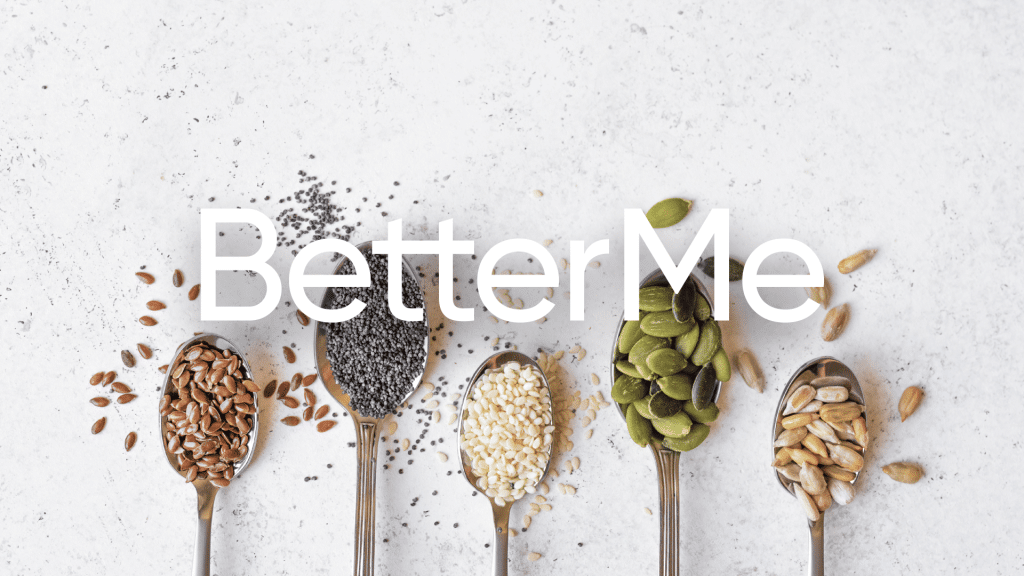A bowl of steaming hot noodles with beef broth, a freshly made slice of pizza with pepperoni, and a delicious stir-fried seafood dish with bean sprouts– are all examples of dishes that are high in glutamate. Your body naturally produces glutamate. This amino acid plays an important role in human physiology. It is involved in learning and memory, and it helps regulate nerve cell activity. It is also a key player in the immune system (5). It is also a neurotransmitter, which means it helps transmit signals between nerve cells in the brain (5). However, too much glutamate can be harmful. If you’re wondering what exactly “too much” means, researchers are still trying to determine that. The current consensus is that consuming a lot of umami-tasting foods can lead to excessive glutamate levels in your brain. Here’s everything you need to know about high glutamate foods, including the ones you should avoid.
Get your personalized
meal plan!
What Is Glutamate?
Glutamate is a non-essential amino acid, meaning your body can make it on its own, that plays several important roles in the body. It regulates the receptors of other important neurotransmitters such as (5):
- Serotonin: A neurotransmitter that plays a role in mood, sleep, and appetite.
- Dopamine: A neurotransmitter involved in the reward system, motivation, and motor control.
- Norepinephrine: A neurotransmitter involved in the fight-or-flight response, attention, and alertness.
- Acetylcholine: A neurotransmitter involved in muscle contraction, heart rate, and the function of the digestive system.
Glutamate also serves as an energy source for cells and is involved in protein synthesis.
What’s The Problem With Glutamate?
The problem with glutamate is that too much of it may cause problems for some people. When there’s too much glutamate in the brain, it can lead to what’s known as “excitotoxicity.” This occurs when nerve cells are over-excited and start to die (2).
Excitotoxicity has been hypothesized to play a role in neurodegenerative diseases such as Alzheimer’s and Parkinson’s. Some believe it can also cause migraines, seizures, and strokes (2).
While more research needs to be done to determine the exact level of glutamate that is harmful and whether it is possible to reach that level from food intake, some people feel that consuming too much of it is not a good idea.
Here are some conditions that have been studied in association with this amino acid:
- Increased Blood Pressure: Monosodium glutamate (MSG) dietary intake has been associated with a short term spike in blood pressure (3).
- Headaches: Anecdotal reports and some small studies have indicated that MSG consumption may trigger headaches in some people (1).
- Obesity: MSG makes food more palatable, which could increase food intake. Studies examining MSG’s effect on weight and weight gain, however, have thus far seen conflicting results (1).
- Diabetes: Some animal studies have shown impacts of MSG on blood sugar and insulin levels, but they typically used extremely high doses that wouldn’t be replicated by human food consumption (1).
- Fertility Problems: Excessively high doses of MSG (sometimes parenterally administered) have been shown to damage the reproductive system in rats. It’s unclear if any effect would be seen in humans at more normal doses (1).
- Cancer: Excessively high doses of MSG have been seen to contribute to tumor progression in animal studies, but this has little relevance for humans (1).
Read More: Foods That Increase Appetite And Aid Healthy Weight Gain
What Food Has A Lot of Glutamate?
Glutamate is found in high concentrations in some foods, especially those that are highly processed or have been stored for a long time. Foods that contain high levels of glutamate include:
Soy
Soybeans and soy products such as tofu, tempeh, and soy sauce are high in glutamic acid.
Dairy
Certain cheeses, like parmesan and Roquefort, are particularly high in glutamate. Lower glutamate alternatives include cheddar.
Peas
Peas are high in glutamic acid.
Nuts
Walnuts, cashews, and peanuts are high in glutamic acid.
Fruits And Vegetables
Tomatoes and mushrooms are especially high in glutamic acid, while potatoes may also cause problems for come people.
Meats
Meats are naturally high in glutamate, but they can contain even more if they are processed or cured with chemicals such as monosodium glutamate (MSG).
Rabbit and turkey are the highest in glutamate while lamb and beef are lower. Pork is in the middle, but processed pork products like ham are high in glutamate.
Processed Foods
Many processed foods contain high levels of glutamate. This includes MSG (monosodium glutamate), a common food additive.
MSG is often added to Chinese food, canned soups and vegetables, processed meats, and some snacks.
Other food additives that contain glutamate include (8):
- Hydrolyzed vegetable protein
- Autolyzed or hydrolyzed yeast
- Yeast extract
- Protein isolate
- Textured protein
- Soy extracts
BetterMe app will kick you out of the mental funk, shake off your extra weight, rid you off your energy-zapping habits, and help you sculpt the body of your dreams. Intrigued? Hurry up and change your life for the better!
What Can I Eat On A Low Glutamate Diet?
A low glutamate diet can be difficult to follow because glutamate is found in many common foods. You’ll need to avoid all processed and fermented foods, as well as any foods that are high in protein.
Here’s what you can eat:
Whole Fruits
Whole fruits are a great source of fiber, vitamins, and antioxidants. Eat a variety of fruits, preferably fresh or frozen, to get the most nutrients.
High Fiber Vegetables
Green leafy vegetables, broccoli, Brussels sprouts, and other high-fiber veggies are a good choice for a low glutamate diet. These foods are nutrient-dense and can help you feel full and satisfied.
Lean Proteins
You’ll need to limit your protein intake on a low glutamate diet. Choose lean proteins, such as chicken and fish. Although these meats have some glutamate, they are lower in glutamic acid than other options.
Healthy Fats
Avocados, olive oil, and other healthy fats can help you feel full and satisfied. Use these in moderation, as they are high in calories.
Herbs And Spices
Herbs and spices add flavor to food without adding glutamate. Fresh or dried herbs can be used to flavor soups, salads, and other dishes.
Read More: 10 Natural Viagra Foods That Work
How Can I Lower My Glutamate Naturally?
If you’re concerned about your glutamate intake, there are several things you can do to reduce it.
Avoid Processed Foods
Processed foods are often high in glutamate because it is used as a flavor enhancer.
These foods include:
- Chips
- Crackers
- Packaged snacks
- Processed meats
Avoid Foods With Added MSG
MSG is a common food additive that contains high levels of glutamate. It’s often added to Chinese food, soups, and processed meats.
Read Food Labels
Food labels will often list “glutamate” or “MSG” as an ingredient. If you see either of these listed, it’s best to avoid the product.
Eat More Whole Foods
Whole foods are a great way to reduce your glutamate intake because they are naturally low in this amino acid. Focus on eating plenty of fruits, vegetables, whole grains, and lean proteins.
Limit Your Intake Of Soy Sauce
Soy sauce is a common condiment that is high in glutamate. If you’re concerned about your intake, it’s best to limit your consumption or avoid it altogether.
Avoid Aspartame
Aspartame is an artificial sweetener that some people say has similar effect to glutamate. It’s often used in diet sodas and sugar-free products.
Choose Glutamate-Free Products
If you’re really concerned about your intake, there are several glutamate-free products available on the market.
These include:
- Glutamate-free soy sauce
- Glutamate-free chicken broth
- Glutamate-free seasonings
Talk To Your Doctor
If you’re concerned about your glutamate intake, talk to your doctor. They can help you determine if you need to make any changes to your diet.
The Bottom Line
Glutamate is a naturally occurring amino acid that is found in many foods. While it is safe for most people, some may feel they need to limit their intake.
Processed foods, MSG, and soy and yeast extracts are all sources of high levels of glutamate. If you’re concerned about your intake, it’s best to avoid or limit these products.
DISCLAIMER:
This article is intended for general informational purposes only and does not serve to address individual circumstances. It is not a substitute for professional advice or help and should not be relied on for making any kind of decision-making. Any action taken as a direct or indirect result of the information in this article is entirely at your own risk and is your sole responsibility.
BetterMe, its content staff, and its medical advisors accept no responsibility for inaccuracies, errors, misstatements, inconsistencies, or omissions and specifically disclaim any liability, loss or risk, personal, professional or otherwise, which may be incurred as a consequence, directly or indirectly, of the use and/or application of any content.
You should always seek the advice of your physician or other qualified health provider with any questions you may have regarding a medical condition or your specific situation. Never disregard professional medical advice or delay seeking it because of BetterMe content. If you suspect or think you may have a medical emergency, call your doctor.
SOURCES:
- A review of the alleged health hazards of monosodium glutamate (2019, nih.gov)
- Chronic Glutamate Toxicity in Neurodegenerative Diseases—What is the Evidence? (2015, frontiersin.org)
- Extensive use of monosodium glutamate: A threat to public health? (2018, nih.gov)
- Glutamate (n.d., tacanow.org)
- Glutamate: a truly functional amino acid (2012, pubmed.gov)
- Glutamatergic Dysfunction and Glutamatergic Compounds for Major Psychiatric Disorders: Evidence From Clinical Neuroimaging Studies (2019, frontiersin.org)
- Monosodium glutamate intake, dietary patterns and asthma in Chinese adults (2012, pubmed.gov)
- Review of Glutamate Intake from Both Food Additive and Non-Additive Sources in the European Union (2018, karger.com)
- The Neurobiology of Opioid Dependence: Implications for Treatment (2002, nih.gov)
- The Role of Glutamine in the Complex Interaction between Gut Microbiota and Health: A Narrative Review (2019, nih.gov)

